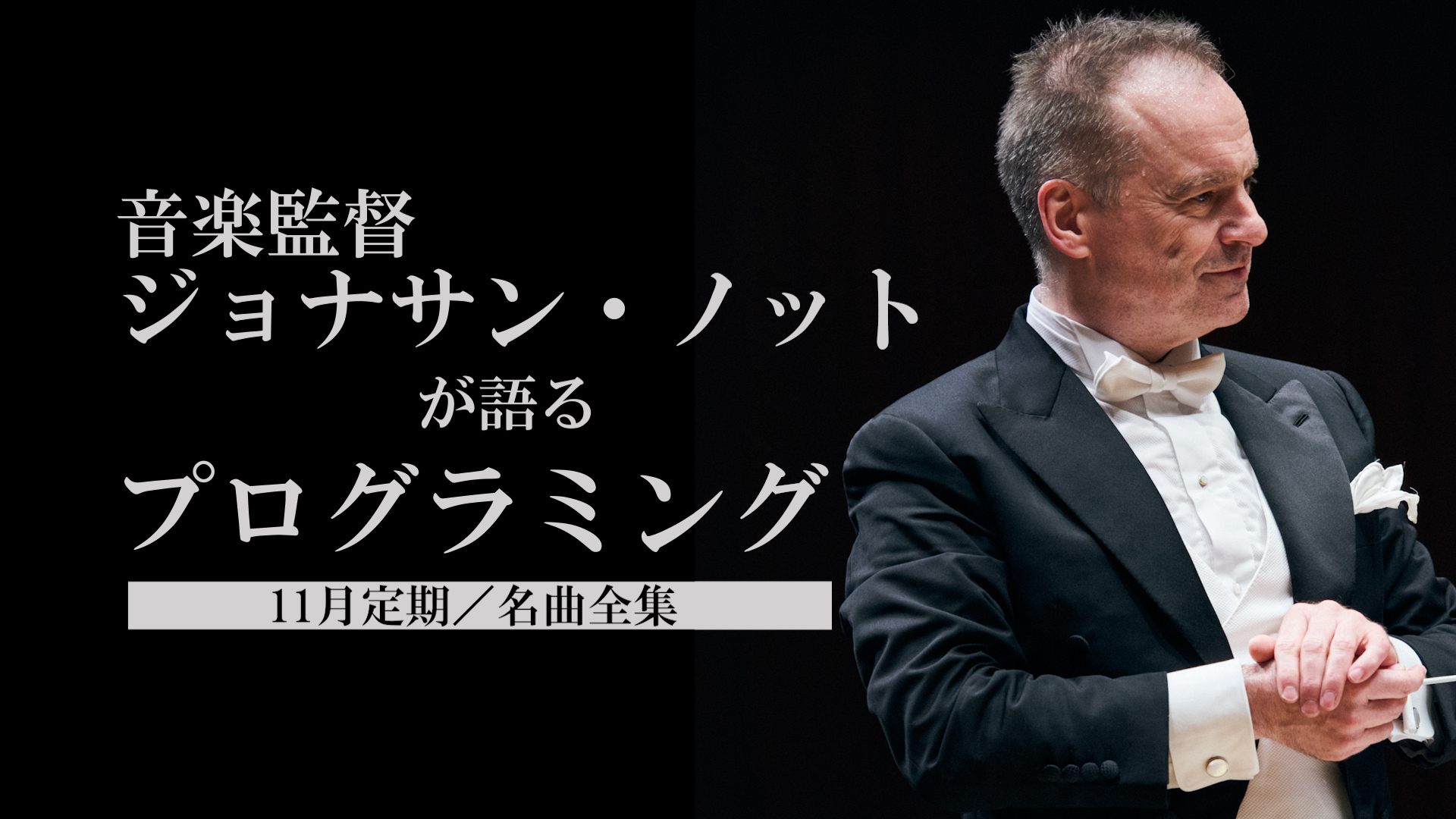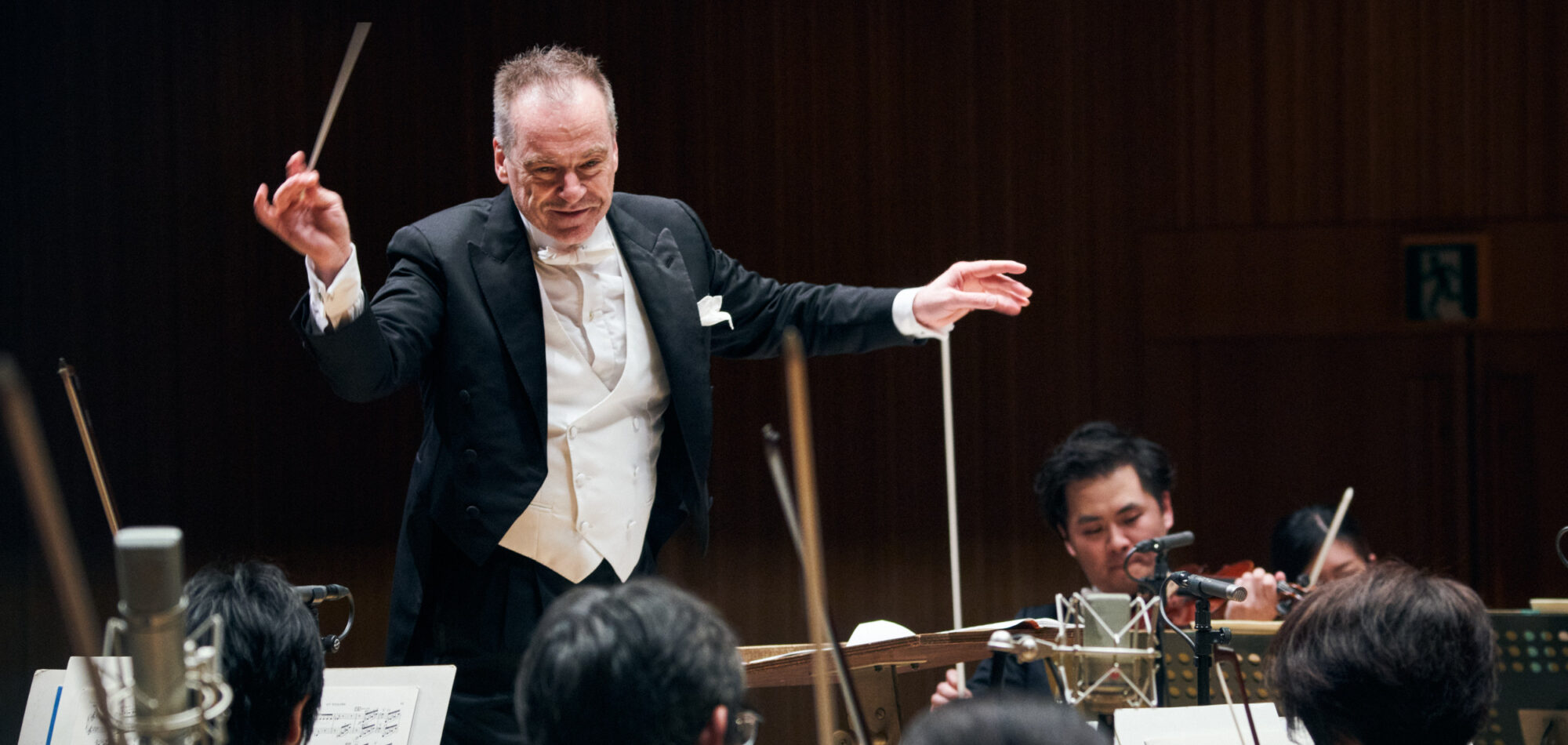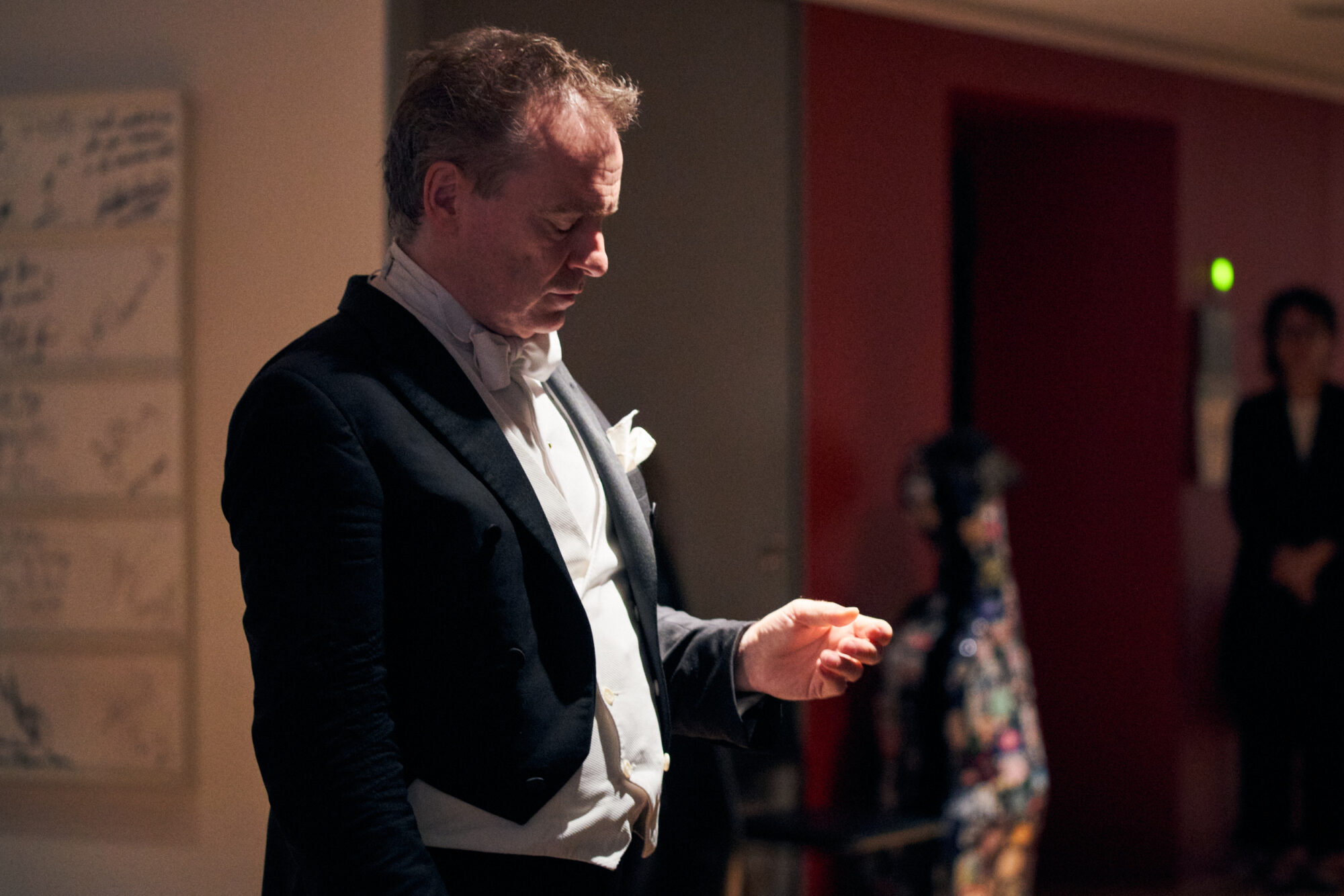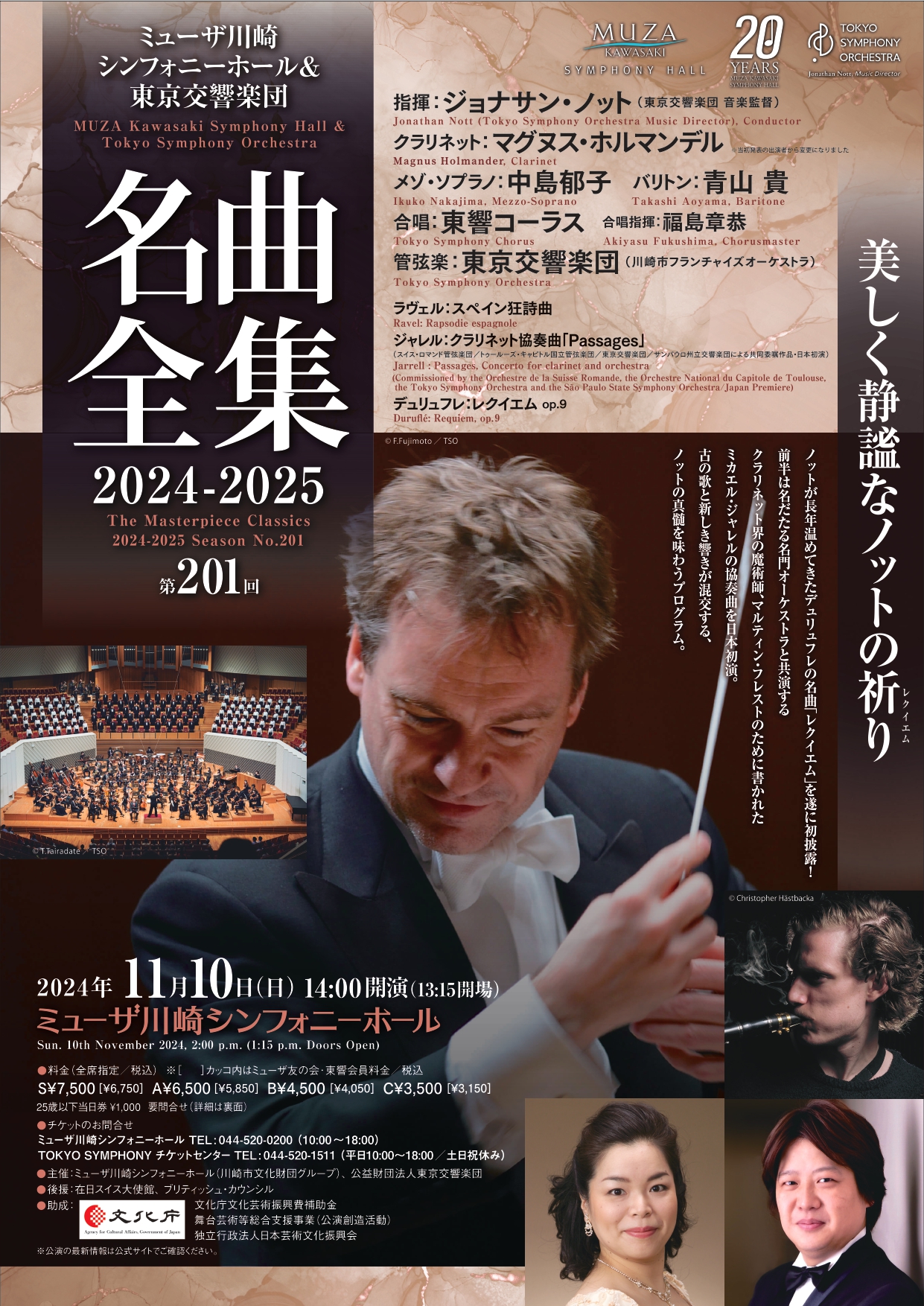
I have come to think that most of our lives are actually spent dealing with “time”, and our desire to find out that the experiences we have with it are not true: that it is not linear, chronological, with beginnings and inevitable ends, that we can transcend time and thus connect to eternity.
Music gives us glimpses that time is indeed malleable.
I have also come to believe that the strength of Germanic music lies in its concept of time being linear: it is of “this world” and conveys the “next”. Its beauty lies in the changes, the growth and the understanding, that occur in us between the first note and the last.
And that the beauty of French music lies in the exact opposite: that there is no journey, no allegory for wisdom in this life, but for the (chronological) duration of the piece we are allowed access to the eternal.

The Ravel is not a “fireworks” piece. On the journey back from Tokyo last week I shut my eyes and listened to it twice in a row. At the end of the first I was melancholy: life seemed about the poignancy of goodbyes. During the second though I was filled with immense positive joy. I have no idea what brought on these changes.
The Duruflé Requiem belongs to the part of my life spent as an 18-year-old singer at university. The moment the first notes sound I am back there, in that part of my life, and the danger is I feel the decay, the transience of life. This Requiem is based on Plain-Chant melodies, the experience of which belongs to my even earlier experiences as a boy singer: a time when I first met the Fauré Requiem.
The Jarrell is right here-and-now. It has a clear Concerto protagonist: telling us his story about time in the present. It has sections based on collections of pitches, as if they were atoms in a crystal structure, around which are clouds of seemingly improvised notes: electrons, fireflies, some sort of energy fields around the building-blocks (of life?). Other sections bring the energy-fields to the front, and cascades of notes push this crystalline structure to the background.

A Requiem must show us that time emanates from one point (clearly on one level, from the life-centre of the person for whom the Requiem is sung) and extends in all directions. Music and our music-experience is there surely to show us that we are not hand-cuffed to the inevitable linearity of “time”.
Maybe this concert programme is not a journey – with a beginning and an end – this time? Maybe I chose it to counteract the sadness often associated with saying “goodbye” at the end of a life? Maybe I wanted to prove to myself that “time” is spherical? Whatever you personally take with you from this concert experience, I am very glad though that we shared it together.
Jonathan NOTT, Music Director


●Subscription Concert No.726
Sat. 9th. November 2024, 18:00 Suntory Hall
●The Masterpiece Classics No.201
Sun, 10th. November 2024, 14:00 MUZA Kawasaki Symphony Hall
Conductor = Jonathan Nott
Clarinet = Magnus Holmander
Mezzo Soprano =Ikuko Nakajima
Baritone =Takashi Aoyama
Chorus = Tokyo Symphony Chorus
Ravel : Rapsodie espagnole
Jarrell : Passages, Concerto for clarinet and orchestra (Commissioned by the Orchestre de la Suisse Romande, the Orchestre National du Capitole de Toulouse, the Tokyo Symphony Orchestra and the São Paulo State Symphony Orchestra/Japan
Premiere)
Duruflé : Requiem op.9
